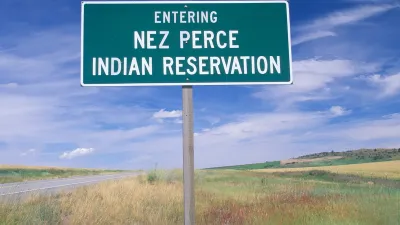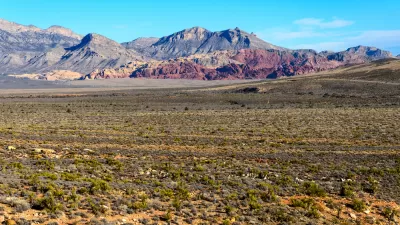Announced at a recent United Nations summit on biodiversity, India’s pledge of $50 million to assist developing countries with conservation efforts marks a significant shift in the way environmental protection is funded worldwide.
It's not the amount itself that has impressed so many, but rather the symbolism behind it; this type of conservation funding has traditionally been within the purview of richer, developed counterparts, reports Vivekananda Nemana. "That's a great initiative," said Lasse Gustavsson, conservation director of the World Wide Fund for Nature. "It won't go far, but you're now seeing this tendency for strong leadership on conservation from the emerging economies."
Due partly to the global economic slowdown's effect on spending in developed countries, and the concomitant rise in economic and political power of developing countries like India, China, and Brazil, "there has been a rise in so-called South-South cooperation, in which developing countries provide each other economic and technical assistance," notes Nemana. In addition to financing from South Korea, Brazil and China, "[d]ozens of other regional efforts have sprouted across Latin America, Africa and Asia," says Nemana, and this trend is expected to continue.
Furthermore, there has also been a push to find more synergy between poverty reduction programs and conservation efforts. "An August 2012 study [PDF] by the Indian government found that it already spent nearly $1 billion per year on development programs that had environmental benefits but that there was much more scope to make poverty-reduction programs greener." The study's author, Damodaran Appukuttawarns, warns, "What is happening right now is that funds are being diverted from poverty alleviation to look at forests. So you have to have a complete paradigm change in the way of looking at conservation, where protected biodiversity is integrated into development."
"In all likelihood, any fundamental shift in who leads the world's conservation efforts will take time," says Nemana. "Still, economic and environmental experts at the convention saw a new trend emerging from the changing global landscape."
FULL STORY: The Tables Might Be Slowing Turning in the the North-South Divide

Planetizen Federal Action Tracker
A weekly monitor of how Trump’s orders and actions are impacting planners and planning in America.

Map: Where Senate Republicans Want to Sell Your Public Lands
For public land advocates, the Senate Republicans’ proposal to sell millions of acres of public land in the West is “the biggest fight of their careers.”

Restaurant Patios Were a Pandemic Win — Why Were They so Hard to Keep?
Social distancing requirements and changes in travel patterns prompted cities to pilot new uses for street and sidewalk space. Then it got complicated.

Platform Pilsner: Vancouver Transit Agency Releases... a Beer?
TransLink will receive a portion of every sale of the four-pack.

Toronto Weighs Cheaper Transit, Parking Hikes for Major Events
Special event rates would take effect during large festivals, sports games and concerts to ‘discourage driving, manage congestion and free up space for transit.”

Berlin to Consider Car-Free Zone Larger Than Manhattan
The area bound by the 22-mile Ringbahn would still allow 12 uses of a private automobile per year per person, and several other exemptions.
Urban Design for Planners 1: Software Tools
This six-course series explores essential urban design concepts using open source software and equips planners with the tools they need to participate fully in the urban design process.
Planning for Universal Design
Learn the tools for implementing Universal Design in planning regulations.
Heyer Gruel & Associates PA
JM Goldson LLC
Custer County Colorado
City of Camden Redevelopment Agency
City of Astoria
Transportation Research & Education Center (TREC) at Portland State University
Camden Redevelopment Agency
City of Claremont
Municipality of Princeton (NJ)





























